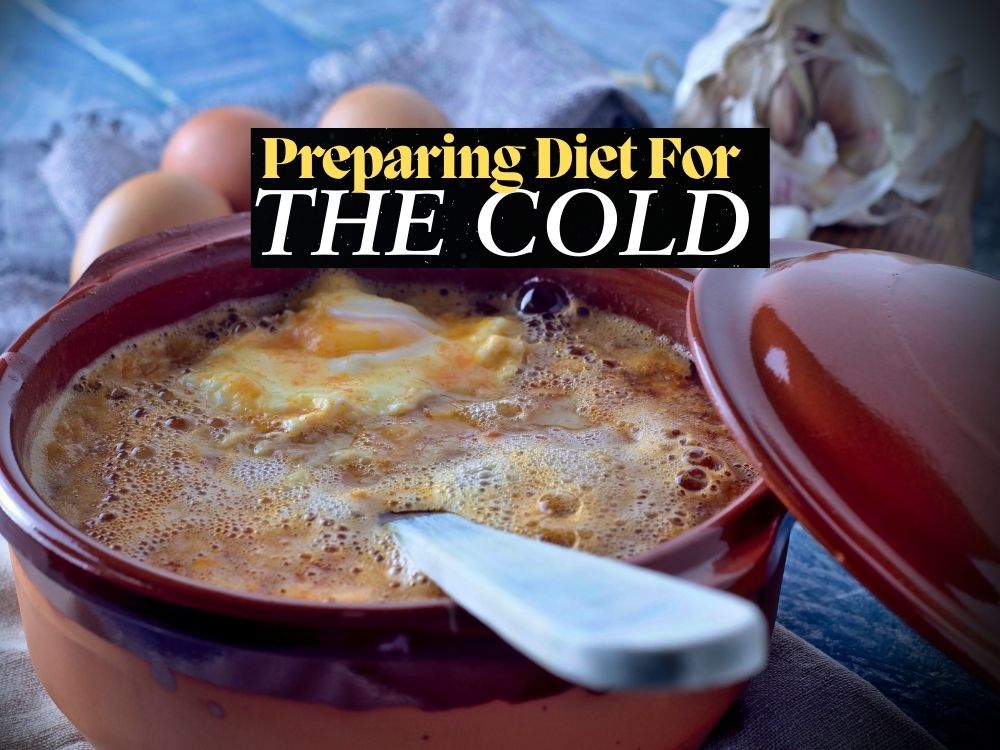As the chilly winds of winter start to blow, our bodies naturally crave warmth and nourishment. The cold weather can take a toll on our immune system and overall health, making it essential to adapt our diets to meet the demands of the season. By incorporating nutrient-dense, seasonal foods into our meals, we can ensure that we stay healthy, energized, and warm throughout winter. This article explores some of the best foods to include in your winter diet, along with meal plans and recipes that are perfect for the colder months.
Why Is a Winter Diet Important?
During winter, our metabolism slows down, and the cold can make us feel tired and sluggish. Our immune systems are also more susceptible to infections like colds and flu. Eating seasonal, nutrient-rich foods can:
- Boost immunity
- Provide the body with essential vitamins and minerals
- Improve digestion
- Help maintain warmth and energy
Nutrient-Dense Seasonal Foods for Winter
- Root Vegetables
- Examples: Carrots, sweet potatoes, turnips, beets, radishes, parsnips, and potatoes.
- Benefits: Root vegetables are rich in complex carbohydrates, which provide sustained energy throughout the day. They are also high in fiber, vitamin A (beta-carotene), and antioxidants, which help support the immune system and improve digestion.
- How to Include Them: Add roasted root veggies to your dinner, prepare mashed sweet potatoes, or include them in stews and soups.
- Leafy Greens
- Examples: Kale, spinach, mustard greens, Swiss chard, collard greens.
- Benefits: Leafy greens are packed with essential vitamins like A, C, and K, as well as iron and calcium. They also have powerful antioxidants that help detoxify the body and fight inflammation.
- How to Include Them: Use greens in smoothies, soups, and salads, or sauté them with garlic and olive oil for a simple, nutritious side dish.
- Nuts and Seeds
- Examples: Almonds, walnuts, flaxseeds, chia seeds, sunflower seeds.
- Benefits: Nuts and seeds are excellent sources of healthy fats, protein, and omega-3 fatty acids, which help keep the heart healthy, improve brain function, and keep the skin hydrated.
- How to Include Them: Snack on a handful of nuts, add them to oatmeal or yogurt, or use nut butters as a spread.
- Citrus Fruits
- Examples: Oranges, grapefruits, lemons, limes, tangerines.
- Benefits: Citrus fruits are rich in vitamin C, which boosts the immune system and helps fight off winter illnesses. They also contain antioxidants that promote healthy skin.
- How to Include Them: Drink a glass of freshly squeezed orange juice, add lemon slices to warm water, or use citrus segments in salads.
- Spices and Herbs
- Examples: Ginger, turmeric, cinnamon, cloves, garlic, thyme, rosemary.
- Benefits: Spices like ginger and turmeric have anti-inflammatory properties that can help ease joint pain and support digestion. Garlic is known for its immune-boosting qualities, while cinnamon helps regulate blood sugar levels.
- How to Include Them: Add spices to soups, teas, curries, and warm drinks like turmeric lattes and cinnamon-spiced hot chocolate.
- Warm Soups and Stews
- Examples: Chicken soup, lentil stew, vegetable broth, bone broth.
- Benefits: Soups and stews are warm, comforting, and hydrating. They are often packed with vegetables, proteins, and herbs, providing essential nutrients that help keep the body warm and nourished during winter.
- How to Include Them: Make soups a regular part of your diet. Prepare a big pot at the beginning of the week and enjoy it for lunches or dinners. Add a variety of vegetables, lean meats, and whole grains like barley or quinoa for a filling, balanced meal.
Meal Plans and Recipes
- Breakfast: Warm Oatmeal with Nuts and Spices
- Ingredients: Oats, almond milk, cinnamon, walnuts, honey, sliced bananas.
- Recipe: Cook oats in almond milk, add a dash of cinnamon, and top with walnuts, honey, and sliced bananas. This warm, hearty meal will keep you energized throughout the morning.
- Lunch: Roasted Root Vegetable Salad
- Ingredients: Sweet potatoes, carrots, beets, spinach, olive oil, balsamic vinegar.
- Recipe: Roast the root vegetables with olive oil, salt, and pepper. Combine with fresh spinach and drizzle with balsamic vinegar. Add some feta cheese or nuts for extra flavor and nutrition.
- Snack: Citrus and Nut Mix
- Ingredients: Orange segments, almonds, sunflower seeds, dried cranberries.
- Recipe: Mix together the citrus segments, nuts, and seeds for a light, refreshing snack that is packed with vitamin C, healthy fats, and fiber.
- Dinner: Spicy Lentil Soup with Ginger and Turmeric
- Ingredients: Red lentils, onion, garlic, ginger, turmeric, cumin, carrots, vegetable broth.
- Recipe: Sauté onion, garlic, ginger, and turmeric in olive oil. Add lentils, carrots, and vegetable broth. Let it simmer until the lentils are soft. Add salt, pepper, and cumin to taste. Serve warm with a slice of whole-grain bread.
Benefits of Eating Seasonal Foods in Winter
- Supports Local Farmers: Seasonal foods are often fresher, more affordable, and support local agriculture. Eating local means the produce is harvested at its peak, providing the most nutrients.
- Boosts Immunity: Many winter foods are rich in vitamins, minerals, and antioxidants, all of which support immune function and help protect against seasonal illnesses.
- Keeps You Warm: Foods like root vegetables, nuts, and warm soups provide the energy needed to maintain body temperature during the colder months.
- Improves Digestion: Seasonal spices and warm meals improve digestion, reduce bloating, and keep you feeling comfortable.
Preparing your diet for winter means embracing the wonderful variety of nutrient-dense, seasonal foods available during the colder months. From root vegetables and leafy greens to warm soups and hearty stews, there are endless ways to nourish your body and stay healthy. Focus on consuming foods that are not only delicious but also provide essential vitamins and minerals to boost your immunity and keep you energized throughout winter.

